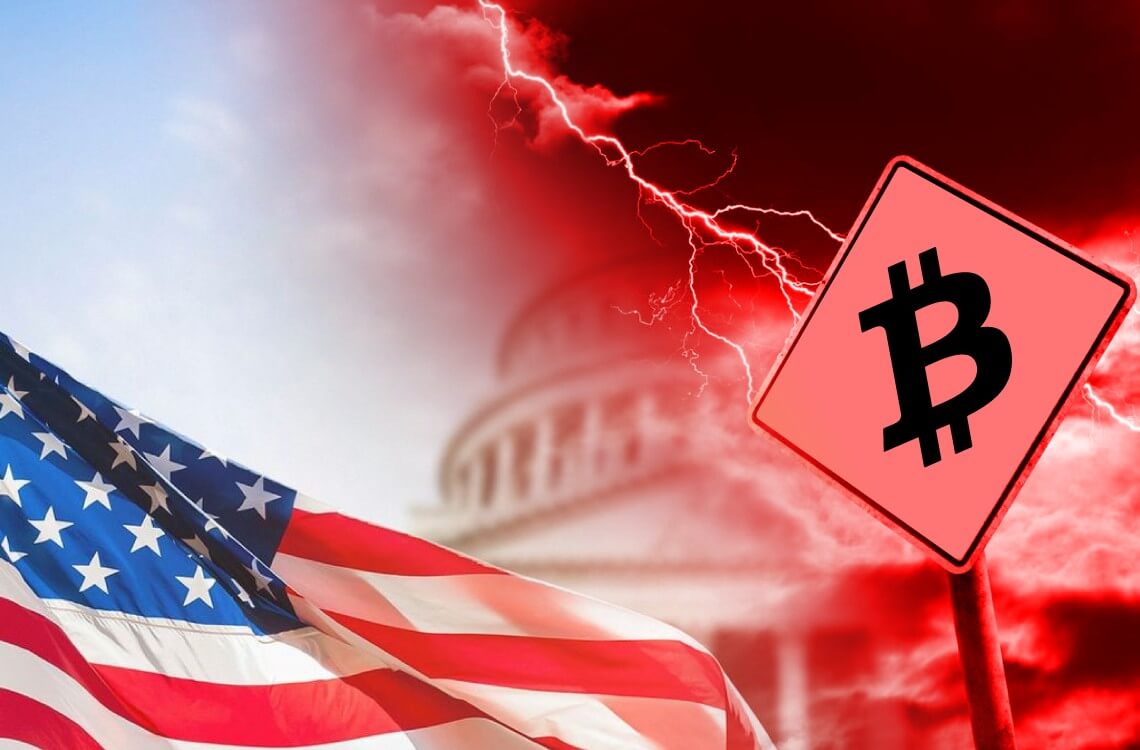As fears surrounding the bankruptcy of Silvergate, Signature, and Silicon Valley Bank, spread across the world, the Federal Reserve was quick to act. In response, they prepared a range of new funding options for financial institutions while reversing their decision to contract the money supply. Switzerland also took action by negotiating a potential merger between UBS and Credit Suisse, the two largest banking institutions in the country. This represented the biggest challenge to financial stability since 2008 and a significant shift in US banking.
Many are understandably concerned about further bank runs and how Federal Reserve policy will affect other banking institutions because of the escalating crackdown by the Federal government against the crypto industry. More so, founding partner at Castle Island Ventures, Nic Carter, earlier warned in an article that regulators and supervisors have undertaken a concerted effort to redline crypto-focused banks. Silvergate and Signature, two of the most crypto-focused banks, were ultimately forced into liquidation and receivership, respectively. The mainstream narrative is that they had made bad investments, or that they could not cope with the ever-changing demands of tech and crypto startups.
In a recent piece, Carter revealed that there is more to this, stating that Signature Bank was among the many banks that were targeted in an opportunistic campaign of regulatory decapitation against those serving the crypto industry. He also said that the bank run may have been instigated by Operation Choke Point 2.0, a program under the Biden Administration that suggests that this could be part of a political agenda to stifle the growth of the crypto space.
Biden Administration war on crypto
Carter said that the Biden Administration’s war on crypto became clear in January 2023 as coordinated efforts between the White House, financial regulators, and the Fed aimed to discourage banks from dealing with cryptocurrency clients surfaced. Although these regulations were condemned by prominent members of Congress such as Sen. Hagerty, Rep. Davidson, and Whip Emmer in a House hearing to determine the legality of such regulatory harassment.
The pushback was met with increased regulation, including a lawsuit from the SEC against Paxos’ BUSD stablecoin, Kraken settling with the SEC for offering a staking product, Chair Gensler labeling all crypto assets (except Bitcoin) as securities, a Senate Committee hearing condemning Bitcoin’s environmental impact, a proposed bill targeting crypto miners, the NY Attorney General classifying Ethereum as a security, the SEC attempting to block Binance US from buying Voyager’s assets and a Wells Notice sent to Coinbase.
The Office of the Comptroller of the Currency (OCC) failed to approve Protego’s application for a national trust charter. Clearly, these measures signify an unprecedented overreach of executive power, making it more difficult for the crypto industry to operate.
Regulators have set a worrying precedent for existing crypto-facing banks, as the situation has gone from precarious to critical. In January, it was already well known that banks could not issue stablecoins on a public blockchain and hold crypto assets directly. Moreover, banks were heavily discouraged from servicing any crypto clients. Regulators also instructed crypto-friendly banks in November to restrict their exposure to crypto firms to 15 percent of deposits. This ratio was never made explicit in written policy, so it is assumed that banks must maintain a ratio below 10 percent in order to cater to deposit fluctuations.
According to Carter, the cause of distress for some banks is straightforward: the US government has been engaging in substantial deficit spending, particularly because of Covid-related measures such as the CARES act. This led to inflation reaching levels not seen since the 1980s, prompting the Federal Reserve to raise rates sharply in order to bring it back in line with their mandate. The sharp increase in interest rates caused bonds to depreciate, particularly longer-dated ones; this resulted in government bond portfolios – the foundational collateral asset of the financial system—suffering their worst performance ever last year. These losses amounted to a combined $620B for US banks, which held much of these bonds. Nic further declared that the massive spending spree was carried out by both the Trump and Biden administrations and the resulting inflation, which then caused a sharp increase in interest rates by the Federal Reserve.
Silvergate Bank, a crypto-friendly institution, recently announced its intent to wind down operations in March because of irrecoverable losses. This announcement brought attention to the wider issue of losses in bank-held-to-maturity portfolios, leading to a bank run that caused multiple other banks such as SVB and Signature to collapse, and even spread to European banks like Credit Suisse. A closer look at Silvergate reveals that it had accepted deposits from crypto firms, invested these into bonds with long maturities when interest rates were low, and faced losses when the rates rose. Furthermore, the selloff in cryptocurrencies led to customers withdrawing their money en masse, which ultimately proved too much for the bank to bear. Ultimately, these events forced Silvergate to close and liquidate its assets.
Silvergate Bank was the victim of a “perfect storm” in 2023. After facing a 70% redemption of client assets throughout 2022, Silvergate was eventually forced to shut its doors due to pressure from regulators and political actors. Nic further added that depositors didn’t just decide to desert banks abruptly, instead they were cajoled and bullied into pulling their funds out due to targeted regulatory action and political manipulation.
Fed’s regulatory policies create greater risks than anticipated
The recent collapse of crypto banks such as Silvergate and SVB is being framed as a crypto issue and a lack of liquidity among depositors. However, this tragedy can largely be attributed to the strict regulatory policies that these banks have endured over the past few months. According to Nic, regulatory authorities often attempt to mitigate risk by implementing strict policies, but this has unfortunately resulted in creating even greater risks than those that were previously present.
Ideally, Custodia’s full-reserve model would have been approved by the Fed years ago and crypto firms would not have been subjected to the volatility of the industry, as all deposits would have been held in short-dated treasuries without any maturity transformation. Unfortunately, the Fed denied Custodia, and crypto firms had to resort to riskier banks instead.
Financial regulators are looking to Silvergate and Signature as cautionary examples, in order to discourage other banks from doing business with crypto firms. But this ‘shoot the stallion’ tactic has had immense collateral damage in the banking industry.




